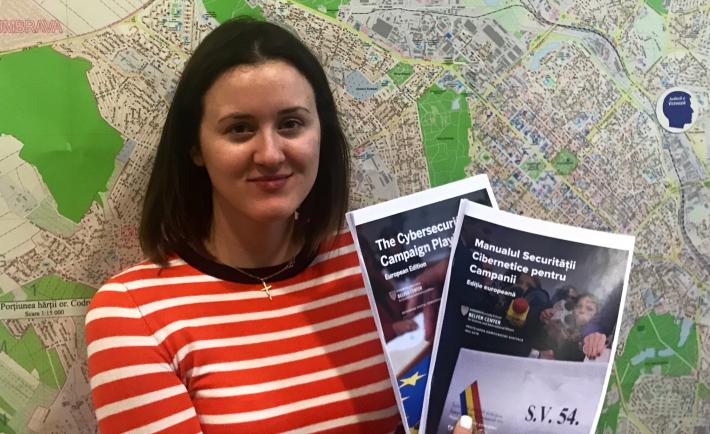For more than 35 years, NDI has worked to support democracy and human dignity in every corner of the globe. We currently work in 70 countries, and partner with thousands of courageous and committed individuals who are working to build a democratic future.
NDI works for democracy… and makes democracy work.
Throughout the month of July the DemWorks Podcast and Video series has been exploring the effect of digital technology on democracy. In this episode we spoke to NDI’s Chief Information Office, Marty Colburn, and Senior Tech Innovation Analyst, Sarah Moulton, on the importance of cybersecurity.
We discovered the lasting effect weak cybersecurity practices have on political campaigns, as well as the steps smaller political campaigns can take to strengthen their own cybersecurity.
Marty Colburn: Cybersecurity has become of utmost importance as we continue to get more and more connected around the globe.
Sarah Moulton: Unfortunately, there's no one-size-fits-all approach to good cybersecurity practices.
Moulton: NDI works for democracy and makes democracy work. We are beginning a new series of videos called DemWorks. This month, we are exploring the effect of digital technology on democracy. Today, we focus on the importance of cybersecurity and the lasting effect weak cybersecurity practices have on political campaigns.
What threat does cybersecurity pose in regard to the political and campaign environment?
Colburn: The National Democratic Institute operates in 70 countries. We do most of our work digitally. As a result, we have significant investments in cybersecurity.
Moulton: We're seeing a lot of larger scale attacks on IT infrastructure, on campaigns by both state and non-state actors. We're also seeing more sophisticated attacks on websites, hacking, infiltrating social media sites.
What kind of lasting impacts can weak cybersecurity practices and policies have on a political campaign?
Moulton: Depending on the scale and scope of the attack, the biggest concern that we're worried about is a loss of trust in the political process.
Colburn: Most folks know information has a first mover advantage. If that information is compromised in any way, it can also erode trust so we believe heavily in making sure that our partners and the people we work with in those 70 countries are protected in the digital world we live in.
What types of approaches has NDI adopted to strengthen its partners’ capacity to respond to these threats?
Colburn: NDI has had a multi-faceted approach to cybersecurity.
Moulton: Through moving beyond standalone trainings to undertaking more comprehensive risk assessments with our partners—and a lot of this work has also been complemented by a partnership that we have undertaken with the Belfer Center and the International Republican Institute where we adapted their cybersecurity campaign playbook for a global audience, and have started to use that as an introductory framework for partners to understand the best practices in cybersecurity.
What kinds of things should campaigns keep in mind when considering their internal cybersecurity practices?
Colburn: They have to secure their infrastructure. They also have to secure their applications, and in doing so they have to think about things like access to applications—two-factor or multi-factor authentication.
Moulton: They're free and anyone can do that, so those are very basic, simple steps that you can take that can dramatically impact your vulnerability to hackers or other digital threats.
For more than 35 years NDI has worked to support democracy and human dignity in nearly every corner of the globe. We currently partner with thousands of courageous and committed citizens who are working to build a democratic future.

